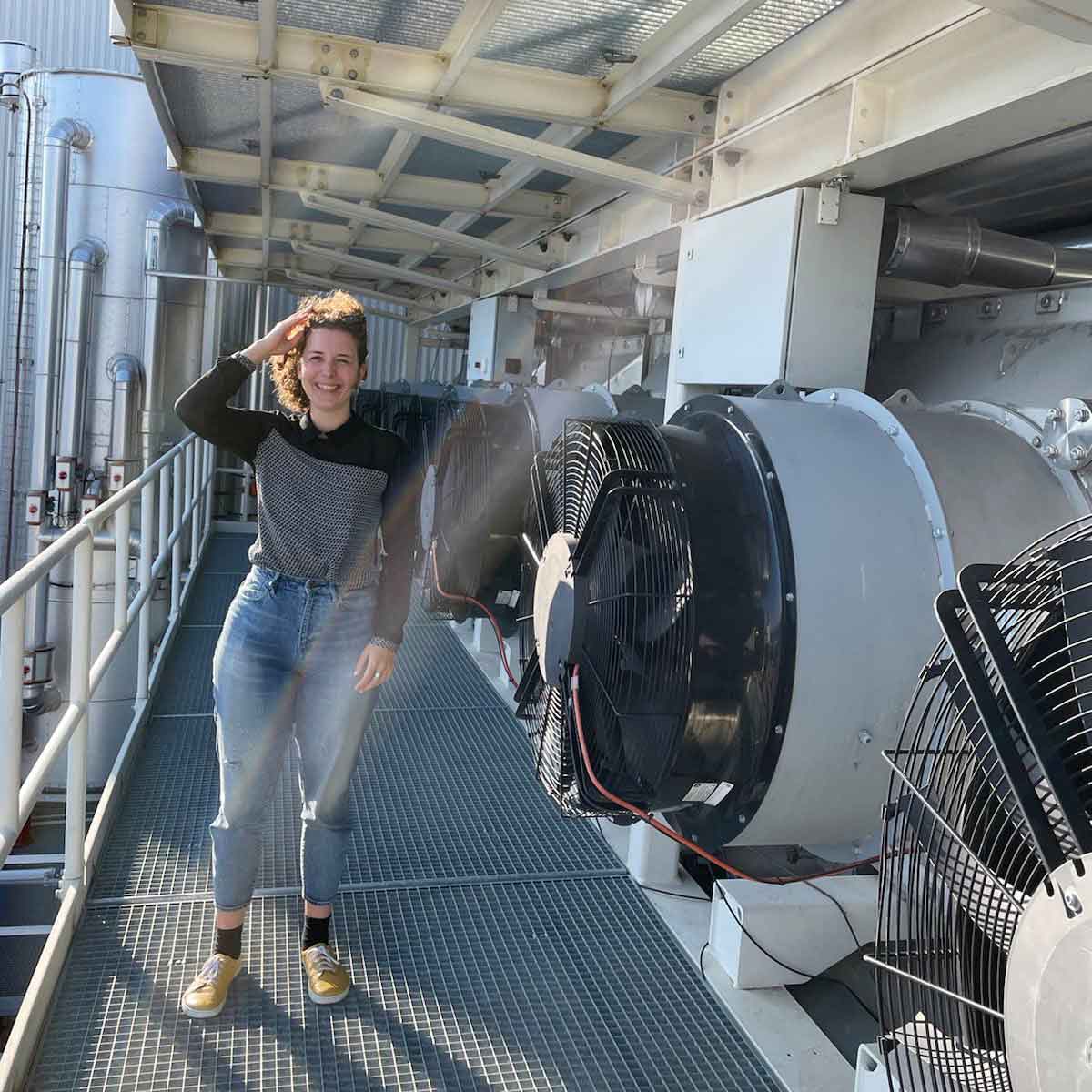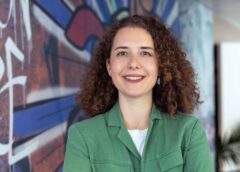The FEMtech initiative by the Federal Ministry for Climate Action, Environment, Energy, Mobility, Innovation and Technology (BMK) introduces women from research and technology to the public with their work in scientific and technical professions. Christina Maria Huber from neoom was the FEMtech expert of the month in October 2023.
As head of the cleantech company’s Sustainability department, Christina Huber operates at the interface between legal, economic, technical and organisational issues. Her education gave her an ideal foundation for this. After graduating with a bachelor’s degree in economics, she opted for the interdisciplinary degree programme Environmental Technology and International Affairs offered by TU Wien together with the Diplomatic Academy. “I actually came across the topic of decentralised renewable energy systems by chance through a part-time job and then wrote my bachelor’s thesis on smart power grids and their role in the energy transition”, says Huber. “I realized that the technical solutions exist, but that they often do not reach business or society, because of the different languages these actors speak. I decided I wanted to become a bridge builder between the technical, economic and social aspects. Finally, I found myself working in corporate sustainability, which is very fitting.” neoom is an international company that originates in Austria and that develops complete solutions for the energy transition. It provides comprehensive support to companies, municipalities and private customers in transitioning towards a decentral renewable energy supply. neoom works with regional partners to plan and build solar storage power plants. It uses its own smart energy management platform neoom CONNECT to control storage systems, photovoltaic systems, as well as e-charging stations and heat pumps from third-party providers to ensure optimal utilisation. The company also develops and implements new business models and compatible financing concepts. “We utilize the emerging opportunities offered by energy markets to develop new business models. Renewable energy communities are one example of this. By the beginning of 2024, we had already founded around 70 energy communities, making us one of the largest providers in Austria,” emphasises Huber.
Designing sustainable solutions for the energy transition involves a wide range of interdependent technical, economic and social issues, and this is precisely why Christina Huber sees lots of opportunities for women in this professional field. “I am delighted to see women increasingly represented in the sustainability sector. I think they are particularly suited to the tasks of bringing about far-reaching changes and of thinking about social dimensions, transparency and fairness in ecological and economic terms,” says Huber with conviction. “Diversity has been shown to improve corporate success and that is why we need women in scientific and technical professions to help shape the energy transition.”
The RENVELOPE research project involves the development and testing of multifunctional CO2-neutral serial systems for the renovation of existing buildings. The concept is based on modular and flexible building envelope elements consisting of a support structure, a thermal insulation layer and energy-active technologies for renewable energy supply (PV, heat pumps, battery storage systems, etc.). The objective is to use these modules to complete both the thermal renovation as well as the energy system switch in one single work step. There are 17 Austrian project partners from research, the building, battery and solar industries developing innovative solutions, that will be demonstrated on three different high-volume building typologies. neoom is a project partner in the development and trial of the façade elements (e.g., research that is taking place on integrating battery storage systems into the building envelope) and is contributing its expertise in areas that include “digital monitoring and operational optimisation”.
The project is being implemented as part of the Green Energy Lab research initiative. www.greenenergylab.at

